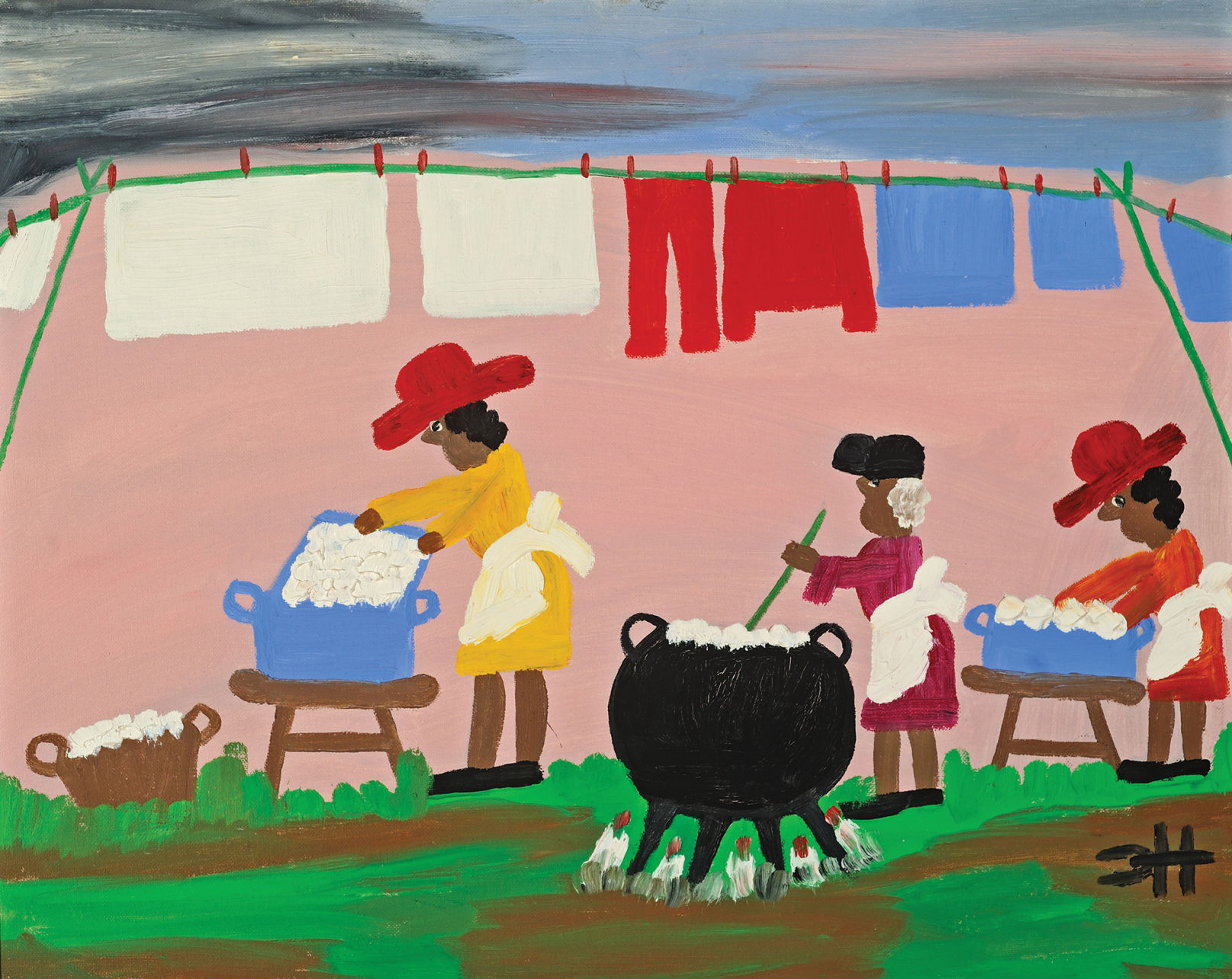
Hunter, Clementine (1886-1988) Wash Day, n.d. Oil on canvas 15.375” x 19.5” © 2013 Cane River Art Corporation
A new $1.25 million grant awarded to this university’s arts and humanities college this month will help expand its use of technology and research in African-American studies.
The college received the grant from The Andrew W. Mellon Foundation, an arts and humanities nonprofit organization that has given more than 80 grants and $66 million this year to assorted schools and associations across the country. The grant became effective July 1, and this university has already received about half of the grant money, with the rest to come in the next year or so, a college spokeswoman said.
The grant — which this university’s Arts and Humanities Center for Synergy and the Maryland Institute for Technology in the Humanities will co-direct — will provide the funding over three-and-a-half years for resources aimed at bringing together digital humanities and aspects of African-American history and culture, such as labor, migration and visual arts.
“What this project does is to bring people from the arts, people from the humanities, people from the libraries together to produce very specific outcomes,” said Sheri Parks, the college’s associate dean for research, interdisciplinary scholarship and programming. “That is a great innovation.”
These specific outcomes include digitizing materials from university archives — which contain the more than 50,000-piece collection at The David C. Driskell Center — for academic use both on and off the campus. The hope is to also organize eight training sessions and hold an open meeting in fall 2016 for faculty and students, Neil Fraistat, MITH director, said.
“We’re almost taking like a data-first approach,” Fraistat said. “We’re saying, ‘Here’s the data. Those of you who have scholarly interests in working with it, let’s show you how you can.’”
Although the grant doesn’t fund existing projects within the arts and humanities college, “It provides a certain level of recognition of the work that we do, the importance of the work that we do and resources to really take that work to another level,” said Bonnie Thornton Dill, the college’s dean.
The new money comes at an opportune time, Thornton Dill added — for both fiscal and interest reasons.
The college has an extensive teaching load and list of responsibilities, she said. But, like most universities, it isn’t funded to the same degree as the sciences. Additionally, she noted the college has seen an increasing focus and number of programs and practices over the years that use digital tools to help answer humanities’ questions.
Recently, more than 40 faculty and graduate students attended a MITH teaching series that looked at an archive of 13 million Twitter posts surrounding the events that took place in Ferguson, Missouri, following the death of Michael Brown. That series was part of the #BlackLivesMatter movement that a community of university students and staff participated in last year, Fraistat said.
For the fall 2016 open meeting, MITH officials said they are expecting attendance to climb to at least 75 people.
“There’s perhaps no more pressing issue in American society right now than the issue of race,” Fraistat said. “We want to — as scholars — further investigate that history and understand our own cultural condition.”



